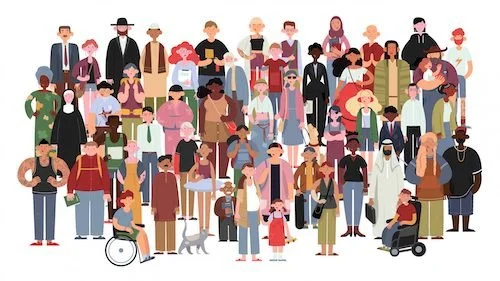Events are a chance for us to share and communicate new ideas with each other, but we know there is much room for improvement. As we actively become more intentional about our decisions across the industry, overlooking the lack of diversity at events is non-negotiable. Though the conference space has a long way to go to improve, there are some bright spots bringing more representation to event stages and agendas.
From conferences dedicated to solely Black people, to our clients who are utilizing their voices to advocate for other Black entrepreneurs, to increased conversations around diversity at events, here are a couple of ways the industry is starting to change.
Giving Black folks their own space.
Whether they are virtual or in-person, events have always been a space where like-minded people can share ideas, challenges, and come together for a few days. For African Americans, Black events are one of the few safe spaces where we can talk about how to empower ourselves and our communities. From tech to communication to health, here are some of our favorite conferences advancing Black voices:
Black Policy Conference (April 9th-10th | Virtual)
Black is Tech (Sept. 20 - 24th | Virtual)
ColorComm Conference (Sept. TBD)
ADCOLOR Conference (Sept. TBD)
CHROMA (Sept. TBD)
Women of Power Summit (Oct. 28 -30 | Las Vegas)
AfroTech (Nov. 8 - 13 | Virtual)
Well-Read Black Girl (Nov. TBD)
Elevating Black voices.
As leaders in the event industry, we have the opportunity and responsibility to make sure that a variety of voices and backgrounds are represented on stage. This year we have set goals for the cred team to work with more BIPOC speakers, and have more minorities and women on the agendas for the events we plan and manage.
While we still have work to do, we’re excited about the opportunity to bring more Black speakers to the stage. If you’d like to get a taste of some of our amazing Black speakers, past and present, we’ve included a selection of talks, below:
Kandis O’Brien, Co-Founder of innovation and strategy consultancy The SIX, discussing how to use design thinking in a crisis.
Ryan Nece, former NFL linebacker and current Managing Partner at Next Play Capital, sharing how lessons learned on the field translate to working in Silicon Valley.
Kerel Cooper, SVP of Global Marketing at LiveIntent, a people-based marketing technology platform, breaking down trends in email marketing.
Lola Bakare, Owner of marketing consultancy be/co, on how to unlock authentic, inclusive, and sustainable growth in your organization.
Promise Phelon, CEO and Founder of The Growth Warrior, sharing how to get funded when you have no idea where to start.
Kahina Van Dyke, Global Head of Digital Channels and Data Analytics at Standard Chartered Bank, advocating for more Black women to enter the FinTech industry, while she was SVP of Business and Corporate Development at Ripple.
Tara-Nicholle Nelson, author and entrepreneur, breaking down how to unlock the deep transformation happens that unlocks the impact every one of us.
Transforming the events industry.
Increased representation is needed now more than ever. When it comes to planning and executing an event, organizers want everyone to feel welcomed and included. After all is said and done, it is important to understand that diversifying your organization and industry is more than just a look. It is an intention. It is an expansion not only in race and gender, but in thought as well.
How can the events industry do more than just talk the talk, but also hold itself accountable to walk the walk?
Make room for change. “Don't make diversity a side dish. Make it the main one." - Valerie Jackson (Procore)
Address your space. Know your audience and remember to ask yourself, “Is everyone spoken to?” Put yourself in the mindset of the people you are serving, not just one perspective and version of the experience.
Think about your planning team. Make diversity, equity, and inclusion part of your planning process. Who’s building and crafting is just as important as who you’re attracting and inviting.
Own up to your mistakes. Understand your blind spots and areas for representation you’ve missed in the past. Leverage your network and partnerships to find solutions.
Interested in getting out there and sharing your unique views on the world, or hosting your own event? Get in touch!
This post was written by Asia Camagong, Gina King, and Bethany Onsgard




